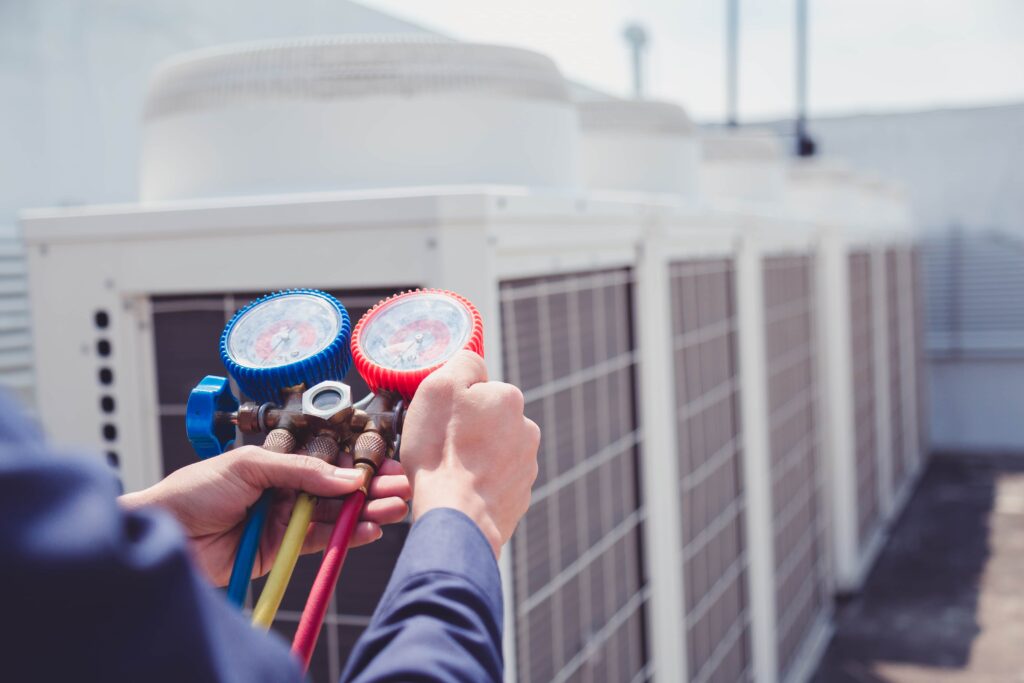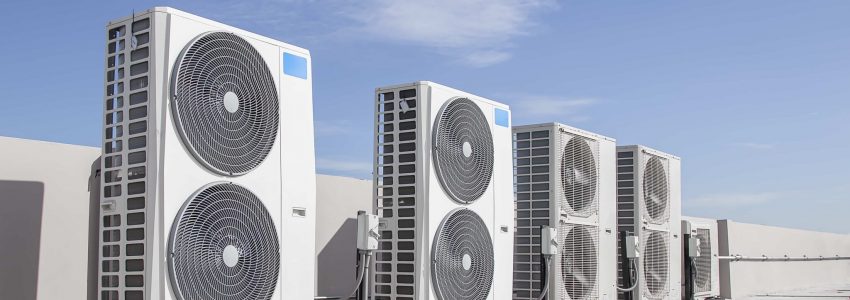Commercial properties come in all shapes and sizes. With commercial air conditioning, it’s certainly not one size fits all – you need to consider the size of the open areas and number of offices before you start any planning.
In general, commercial air conditioning units are larger and more powerful than domestic units. After all, commercial air conditioners need to cool and heat bigger areas for long periods day in, day out. Choosing the best commercial air conditioning can come down to efficiency, customisation options and brand reputation. Remember, a cheaper system upfront may not be the best long-term solution.
Let’s look at what types of air con systems are available and how you can choose the best commercial air conditioning for your business.
5 Key Factors of Commercial Air Conditioning

1. Know the area you’re cooling/heating
Before you settle on a commercial air conditioning system you should consider the size of the space, the number of occupants and the amount of sunlight exposure. This will determine the amount of cooling or heating required.
2. Choose an energy-efficient air conditioning system
Commercial air conditioners can consume a significant amount of power. Selecting an energy-efficient system will not only reduce your power bills but also have a positive impact on the environment. Make sure you check the Energy Rating Label and talk to your supplier to understand what model is best for your business.
3. Ask about customised commercial air conditioning
Every business building is unique, and so are its requirements for air conditioning. Look for a provider who can offer a range of commercial air conditioning products, not just one option. Your provider should also offer bespoke commercial air conditioning installation tailored to your building’s unique features.
4. Consider future maintenance and servicing costs
All commercial air conditioners will need repairs or servicing at some stage. Choosing a known brand will make it easier to source parts, usually for a reasonable price. Proper maintenance is crucial to the longevity and efficiency of your commercial air conditioning system so it’s certainly a cost you’ll need to factor in.
5. Understand why some brands are superior
Some brands specialise in commercial air conditioning. It’s good to know these brands and understand why some are superior. A brand like Mitsubishi Heavy Industries is well known and respected and has been in the Australian market for almost 50 years. To be successful after all that time you must be doing something right.
Types of Commercial Air Conditioning Systems

Ceiling cassettes
These are commonly found in small to medium-sized office buildings. The ceiling cassettes can be conveniently installed into the ceiling or rafters, blending in with the look of the room. Ceiling cassettes can run independently or all at once depending on your requirements.
Commercial HVAC units
Heating, Ventilating and Air Conditioning (HVAC) systems can be used for large industrial buildings, office blocks and warehouses. These systems control air temperature and humidity, moderating both by taking air from outside the building.
Ducted reverse cycle systems
Ducted reverse cycle systems offer both heating and cooling and are a cost-effective option. Ducted systems are designed to service multiple rooms individually or all at once. They also offer health benefits by filtering out air contaminants such as dust.
VRV reverse cycle systems
VRV systems can connect multiple units to a single large condensing unit. Each unit has its own control panel and thermostat so it can operate individually. VRV systems have proven to be a cost-efficient solution.
Evaporative coolers
Evaporative coolers are a popular choice for office environments and large spaces as they tend to use a lot less power. Evaporative coolers are also CFC FREE, making them environmentally friendly.
Wall split systems
Wall split systems are an option for those needing to heat or cool single rooms. The unit is wall-mounted indoors and is connected to an outdoor compressor. These units are easy to install and remove, and are quiet.
Multi-head systems
A multi-head split system uses one outdoor unit connected to multiple indoor wall units. Each unit has individual controls. Depending on the layout of the premises, the multi-head systems can service up to 14 wall units.
If you want to know more about commercial air conditioning and find out what option is best for your business, talk to the team at Perth City Air. We’re West Australian owned and operated and have been serving the commercial industry in Perth for over 30 years.
To get a detailed quote on commercial air conditioning and installation, contact us today.

